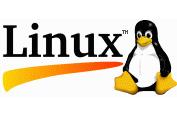Corporate investment the price of Linux's freedom
It may be open source, but Linux has frequently required corporate support, including from the proprietary software market.

Recently Alan Cox, a key Linux kernel developer, moved from his job at Red Hat to Intel. This move may have been surprising to some, but it makes a lot of sense for Intel, for Cox, and for Red Hat.
Intel gains a kernel developer, Cox gets closer to the chips, and Red Hat benefits from Cox's work with Intel. In many ways, this appointment is a reflection of how far both Linux and Intel have come. Linux is now the operating system of choice for many corporate applications, and Intel is nearing its goal of displacing RISC-based Unix systems in the data centre.
How long will it take?
For many years Alan Cox, was regarded as number two in the Linux development tree. Born in Solihull in the West Midlands in 1968, Cox went to the University of Wales in Aberystwyth and Swansea, where he still lives. When he was at university, he "was working on things like a multi-user game which is how I accidentally got involved with the kernel." He was aware of "the free software things, not so much the GNU stuff," but the small tools that were posted to Usenet, which came with the proviso that "if the software breaks you get to keep both pieces."
Cox recalls that the way of things in those days was that "if you wrote something neat you posted it to Usenet", and people downloaded it and did as they liked with it.
Cox had written a multiuser game and "wanted a better platform than my Amiga for that." He considered 386 BSD which needed floating point. "I hadn't got the floating point chip, which was 70 quid at the time, so I installed Linux." He ported his multi-user game to Linux, but there were still things it couldn't do, "so I fixed those and discovered that someone else had already fixed them before me."
He installed Linux on the Swansea Computer Society machine, and "started trying to make the networking code work properly, because it was buggy at the time." The university had a "nice very noisy multi-protocol network which was just perfect for crashing your computer. I started fixing these things, which is how I ended up doing the networking code, building on the base networking code that other people had done... Some things weren't really fixed until somebody became involved who really understood how the maths behind these things worked."
Get the ITPro daily newsletter
Sign up today and you will receive a free copy of our Future Focus 2025 report - the leading guidance on AI, cybersecurity and other IT challenges as per 700+ senior executives
This is how Linux began for many Linux developers, work done for fun while they were busy doing other things. By the time of the 1.2 release of the kernel, and thanks to the contributions of Cox and others, Linux had become "a real operating system".
Gratifyingly, Cox began to observe the now-classic scenario where the techies led the management into "finally deciding that Linux is acceptable. Management says: 'OK. We'll agree to switch the web servers over to Linux. How long will it take?', and the guys have gone away and made up a number, because they have been running Linux for months."
The open source pie
For a long time, nobody but the nerds and geeks and the occasional sysadmin took Linux and free software seriously. But now it seems that every corporation has its finger in the open source pie, and every long standing free software developer has been employed by a multi-billion dollar company to work on the project of his or her choice. This change began to happen during the late nineties, prior to Red Hat's $6 billion flotation on the NASDAQ, but became truly significant when IBM announced its commitment to Linux in December 2000.
Once more than one hardware company had formed a commitment to Linux, it became obvious that there was a mutual advantage in contributing back to the project, and they did. The framework that made this possible was the GPL. The release of core chunks of corporate code under the GPL accelerated the development of Linux and ensured its success in the enterprise. "Open source" became big business.
-
 Global cybersecurity spending is set to rise 12% in 2025 – here are the industries ramping up investment
Global cybersecurity spending is set to rise 12% in 2025 – here are the industries ramping up investmentNews Global cybersecurity spending is expected to surge this year, fueled by escalating state-sponsored threats and the rise of generative AI, according to new analysis from IDC.
By Ross Kelly Published
-
 Google Cloud is leaning on all its strengths to support enterprise AI
Google Cloud is leaning on all its strengths to support enterprise AIAnalysis Google Cloud made a big statement at its annual conference last week, staking its claim as the go-to provider for enterprise AI adoption.
By Rory Bathgate Published